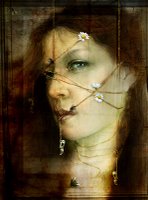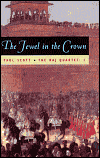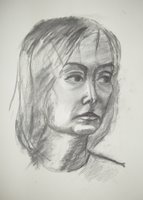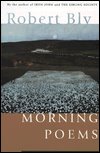Continuum
 Despite all that I had heard about it, I was completely unprepared for the experience of watching Brokeback Mountain. For one thing, it is a breathtakingly beautiful movie. Even a truck with headlights on driving down the highway before dawn moved me. But what I liked best about the movie, what perturbed me -- in that strangely pleasant way that precedes a moment of understanding, of learning something new -- was how it rejected any labels, any simple answers about human sexuality. What happens between the two male protagonists is "this thing" -- not love, not lust, not any words that we fall back on when we experience a full and intense connection with another person. The two men are simply two men living their lives, and I found that immensely compelling.
Despite all that I had heard about it, I was completely unprepared for the experience of watching Brokeback Mountain. For one thing, it is a breathtakingly beautiful movie. Even a truck with headlights on driving down the highway before dawn moved me. But what I liked best about the movie, what perturbed me -- in that strangely pleasant way that precedes a moment of understanding, of learning something new -- was how it rejected any labels, any simple answers about human sexuality. What happens between the two male protagonists is "this thing" -- not love, not lust, not any words that we fall back on when we experience a full and intense connection with another person. The two men are simply two men living their lives, and I found that immensely compelling.Homosexuality is a very difficult concept for me to understand. It's not that I find it unnatural -- not since I learned, in my first physical anthropology class, about a species of primates who use sex in all its forms as currency -- but that I'm not sure what range of behavior or psychological characteristics the meaning of the word covers. The dictionary says that a homosexual is someone sexually attracted to a person of the same sex. But what people fall clearly into (and out of, for that matter) such a clean-cut category? What lives are lived exclusively on this or that side of the line you draw in the sand?
I had great trouble at first with the idea of homosexuality. I was religious for a while and instictively agreed with the church's decision that homosexuality was a sin. But then I met people who called themselves homosexuals, and became friends with them. I grew to care for them very deeply and forgot about that label that the world or themselves had put on their sexual lives. It simply didn't matter any more who they preferred to have sex with. My indifference to their homosexuality shocked me; how could I disregard such a fundamental part of who they were? But I have come to believe that sexuality isn't such a fundamental part of oneself after all. It is because people believe that it is fundamental that they get so worked up about it and they are unable to see the rest of what a person called "homosexual" is: a human being like any other, doing the best they can to live a good life.
Husband, however, shined a little light on another reason people get so worked up about sexual orientation. Sex, Husband said, is the stuff of life; it's because of sex that we exist, that we have life. So it's important not to be obsessed with sex, but equally important not to be dismissive.
A word about the picture at the top of this entry: I chose it because it is beautiful and creepy at the same time and gives me the feeling of good discomfort that Brokeback Mountain did. The picture is by Bev Hodson and titled "Continuum." The title reminds me of something else that I find essential in thinking about sexuality: like all things, sex is not black or white, straight or gay; it's a continuum with a very large grey area along which, whether we like to admit it or not, most of us are strung like beads on a necklace.













